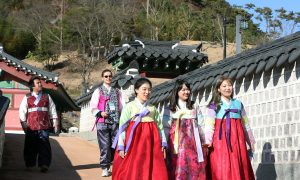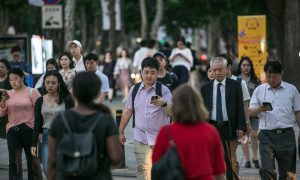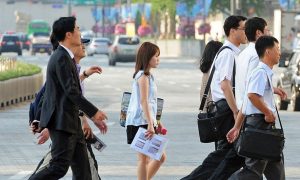In 2025, the South Korean government has made a significant contribution to theimmigrantsdealA number of adjustments were made involvingPermanent Residency (F-5), Residency Visa (F-2), and Investment Visa (D-8), among many others. The new policy will affect foreigners planning to move to Korea, whether for long-term residency, investment and business start-ups, or skilled migration.The key changes that need to be understood by all of them. This article will provide a comprehensive explanation of the2025New Deal for Korean Immigrants, to help you make more informed immigration decisions.
I. F-5 Permanent Resident Visa (Korean Green Card) Policy Adjustment
The F-5 visa is a KoreanPermanent Residence VisaThe holder enjoys almost the same treatment as a citizen of his or her country, such asFreedom to work, start a business and enjoy social benefitsEtc. 2025, the new policy has the following main changes:
1. Increased threshold for applications: stricter financial requirements
- (in the) past: To apply for an F-5 visa you needstable incomemaybeProof of assets, but with less stringent requirements on the amount.
- New regulations for 2025: The Korean government willIncrease in the minimum income standardThe applicant is required to prove thatAnnual income not less than 1.5 times the per capita income of Korea(approx.60 million won/year, equivalent to about 320,000 yuan).
📌 People affected: the impact on ordinary foreign workers and low-income earners is greater.Highly paid technical personnelThen it is more advantageous.
2. Increase in Korean language proficiency requirements
- (in the) past: Korean language proficiency is not mandatory for some F-5 categories.
- New regulations for 2025::All applicantsmust passTOPIK level 3 or aboveor completion of a government-recognizedKorean Culture ProgramThe
📌 suggestion: Prepare for TOPIK in advance, or choose an officially designatedSocial integration courses(KIIP).
II. F-2 Long-term Resident Visa: More Flexible but Stricter
F-2 visas allow foreign nationals toPermanent residenceand easier to apply for permanent residence (F-5).In 2025, the following adjustments occur to the F-2 visa:
1. Reform of the "points system": greater emphasis on higher qualifications and salaries
KoreanF-2 point systemRequires the applicant to meetAge, education, income, Korean language abilityand other standards, and the new policy focuses on adjustments in 2025:
✅ extra points for education: Increased bonus points for master's and higher degrees, making it harder to apply with lower degrees.
✅ Annual income requirement: Increase to45 million won/year (about 240,000 RMB), which is difficult for low-paid people to apply for.
✅ Extra points for social contribution: Higher bonus points for volunteer activities, tax records, etc.
📌 People affected: ForHighly educated, white-collar, and skilled people are more friendly, making it more difficult for ordinary blue-collar wage earners to apply.
2. Reduced work restrictions for entrepreneurs and freelancers
- (in the) past: F-2 visa holders in certain industriesCan't work freelyThe
- New regulations for 2025: F-2 visa holders canFree employment, entrepreneurshipAttracting moreDigital nomads (e.g. programmers, designers, self-publishers)The
📌 Recommended for::Freelancers, entrepreneurs, KOL bloggers, technicians, can utilize the F-2 visa for long term development in Korea.
III. D-8investment immigrationVisas: lower thresholds and faster approvals
D-8 visas areForeign entrepreneurs or investorsAn important channel to set up a company and obtain long-term residency in Korea. 2025 sees more favorable policy adjustments for the D-8 visa:
1. Small and medium-sized investors benefit from lower investment thresholds
- (in the) past:: D-8 visa requirementsMinimum investment of 100 million won (approx. 540,000 RMB)The
- New regulations for 2025: Investment thresholds in some sectors reduced to70 million won (about 380,000 yuan)Supportmicro-entrepreneurThe
📌 Recommended Industries::Technology, digital content, cultural creativityThe government encourages foreigners to open their own businesses.newly established enterpriseThe
2. "Fast-track" approval mechanism to shorten the time to approval
- (in the) past: D-8 Visa Approval Time6-9 monthsThe
- New regulations for 2025: The Korean government will launch "Fast Track Approval".Within 3 monthsReady for approval.
📌 population (esp. of a group of people): Chinese who want to start a business in Korea can choose fromIncorporation + D-8 Visamodel and land quickly.

Four,Immigration to KoreaThe best strategy: how to get your status successfully?
1. If you are a technical person(IT, engineers, medical, etc.):
✅ ApplicationE-7 Employment VisaThe F-5 can be converted to F-5 permanent residence after 5 years.
✅ Apply for an F-2 visa and meet the income requirements before converting to F-5 permanent residence.

2. If you are an entrepreneur(Open company,investment immigration):
✅ Choose the D-8 investment visa and try to choose government-encouraged industries (e.g. digital content, technology).
✅ Apply for an F-2 visa first, enter as a freelancer, and then consider investing in a D-8.
3. If you are a foreign student and want to immigrate to Korea::
✅ Apply firstD-2 Student VisaTransfer after graduationD-10 Job Seeker VisaThe
✅ Apply when you find a regular jobE-7 VisaThe F-5 Permanent Residency Program is available for 5 years.
✅ Master's degree holders and above are recommended to apply directly to the F-2 point system.
V. Conclusion:Korea ImmigrationEmerging trends in policy
The New Korean Immigration Policy in 2025Increased focus on highly educated, highly paid talentWhile encouraginginvestment and entrepreneurship, but for low-income, unskilled immigrants, the thresholdsmarked improvement. Recommended if you plan to immigrate to Korea:
✅ Plan your career in advance: Choose a career path that meets the needs of Korea and improve job competitiveness.
✅ Learn Korean and improve your language skills: Increase the success rate of your visa application by passing the TOPIK test or social integration course.
✅ Rational planning of funds: Both immigrant investor and F-2/F-5 applications require financial support.
Korea is becomingMore openness, while the bar is being raisedIf you want to be successful in 2025Immigration to Korea, be sure to prepare in advance to capitalize on the policy window!






